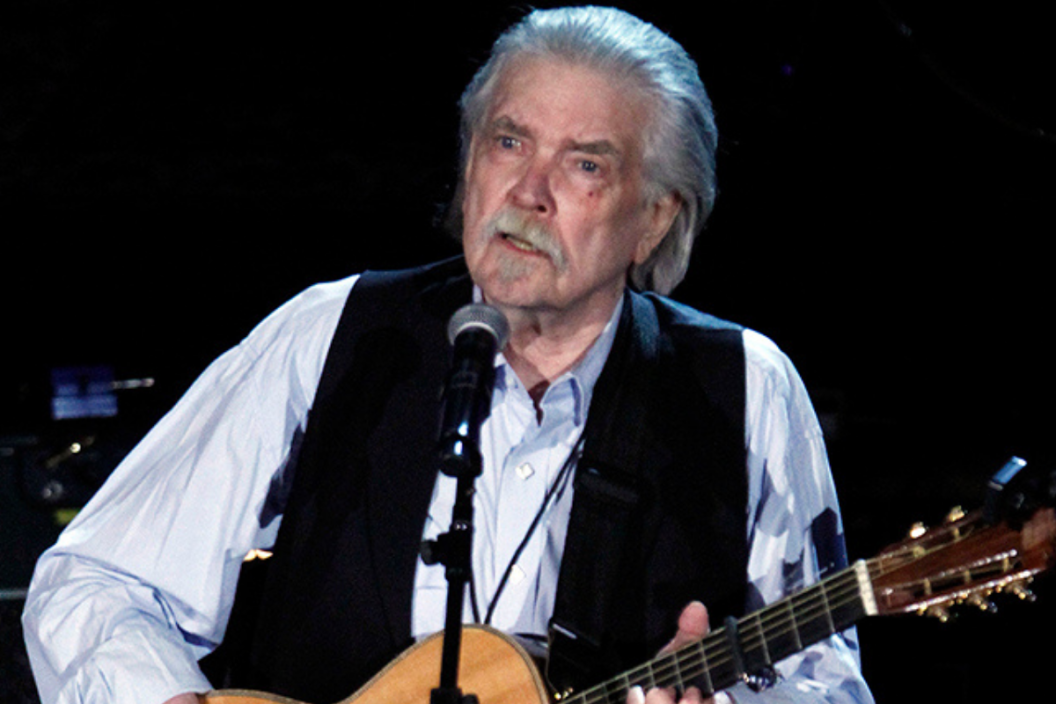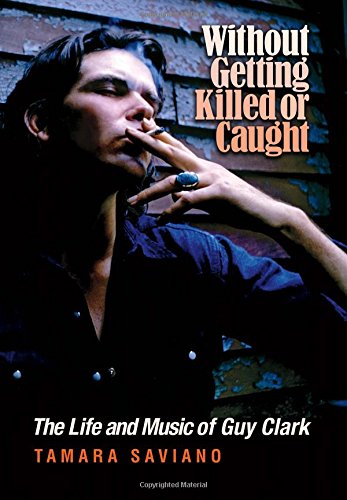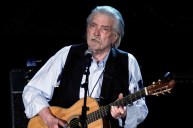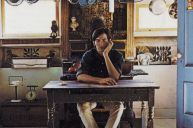The new documentary Without Getting Killed or Caught lovingly captures the life and legacy of late songwriting legend Guy Clark. The film is a gripping look at Clark's work, his life with fellow artist Susanna Clark, his enduring friendship with Townes Van Zandt and the countless future legends in their orbit.
Directed by Tamara Saviano (author of the Clark biography Without Getting Killed or Caught: The Life and Music of Guy Clark) and Paul Whitfield, the film features excerpts from Susanna Clark's diary (read by Sissy Spacek), audio of Susanna's tapes and interviews with the many artists inspired by Guy and Susanna — Rodney Crowell, Vince Gill, Steve Earle and more.
Below are 6 things we learned from Without Getting Killed or Caught.
Susanna Clark Painted With More Than Words
Beyond her career as a critically — and commercially — successful songwriter, Susanna went through quite a few paintbrushes while creating a different kind of art.
Some fans will immediately think of Susanna's painting of a denim, button-down shirt on the cover of Guy's 1975 album Old No. 1 when the documentary introduces her as an artist in every sense of the term. Others will recall an even more famous Susanna original: the cover of Willie Nelson's 1978 classic Stardust.
— Bobby Moore
Guy's Son Travis Was His Bassist
Travis Clark, a former reggae musician, joined his father on the road and in the studio throughout the '90s run that solidified Guy's back catalog as one of the building blocks of Americana.
Guy's only child was from his first marriage to folk singer Susan Spaw.
Travis died of an aortic aneurysm on October 12, 2017, just under 15 months after his father's passing.
— Bobby Moore
Guy Hated the Album Title 'Craftsman'
Guy makes it clear in the film that he loathed the seemingly complementary title of Rounder/Philo's 1995 compilation Craftsman.
It's easy to assume that whoever named the collection of Clark's Warner Bros. recordings was lauding the songwriting legend for meticulously building detail-oriented songs.
During a Q&A after an April 25 online screening of the film, Kix Brooks explained why a poet might shun blue collar comparisons.
"I think it's because that term can mean you learned how to craft a song," Brooks said. "I call it inspiration versus perspiration."
Guy might have also wanted to differentiate his songwriting talent from his guitar-building skill.
— Bobby Moore
'Texas Cookin'' Was Inspired by Guy's Frustration With Nashville Cuisine
Like any good Texan, Clark never stopped singing the praises of his home state — particularly when it came to barbecue, chili, enchiladas, chicken fried steak and white gravy. The documentary reveals that Clark's "Texas Cookin'," from his 1976 album of the same name, was written out of Clark's frustration with not being able to find any "real food" in Nashville.
— Bobbie Jean Sawyer
Clark Wrote 'Let Him Roll' After Boarding Himself Up in the Bedroom
One of the most captivating parts of the documentary is the dynamic between Clark, his wife Susanna and his best friend Townes Van Zandt. Like soulmates tend to do, they got under one another's skin from time to time. Clark even went so far as to take a hammer and nails and nail himself into his bedroom to get away from Susanna and Townes, who Clark said were "denigrating his intelligence."
It all worked out in the end though. In his solitude, Clark penned the classic "Let Him Roll," later recorded by Johnny Cash.
— Bobbie Jean Sawyer
Clark Wrote 'L.A. Freeway' on a Burger Sack With Susanna's Eyebrow Pencil
One of Clark's pieces of advice for songwriters was a simple, but important, note — if you have an idea, write it down immediately before you forget it. The iconic lyricist was speaking from experience.
When inspiration hit for his song "L.A. Freeway," Clark grabbed the closest things to him — a burger sack and Susanna's eyebrow pencil and wrote "If I can just get off of this L.A Freeway without getting killed or caught." He knew he had something and kept the scrap of paper for two years before finally finishing the song at his home in East Nashville.
"L.A. Freeway" was first recorded by Jerry Jeff Walker for his 1972 self-titled album. Walker made the song a hit and the song helped launch Clark's now legendary songwriting career after it appeared on his 1975 debut Old No. 1.
— Bobbie Jean Sawyer
Now Watch: Remembering John Prine Songs Through the Years





